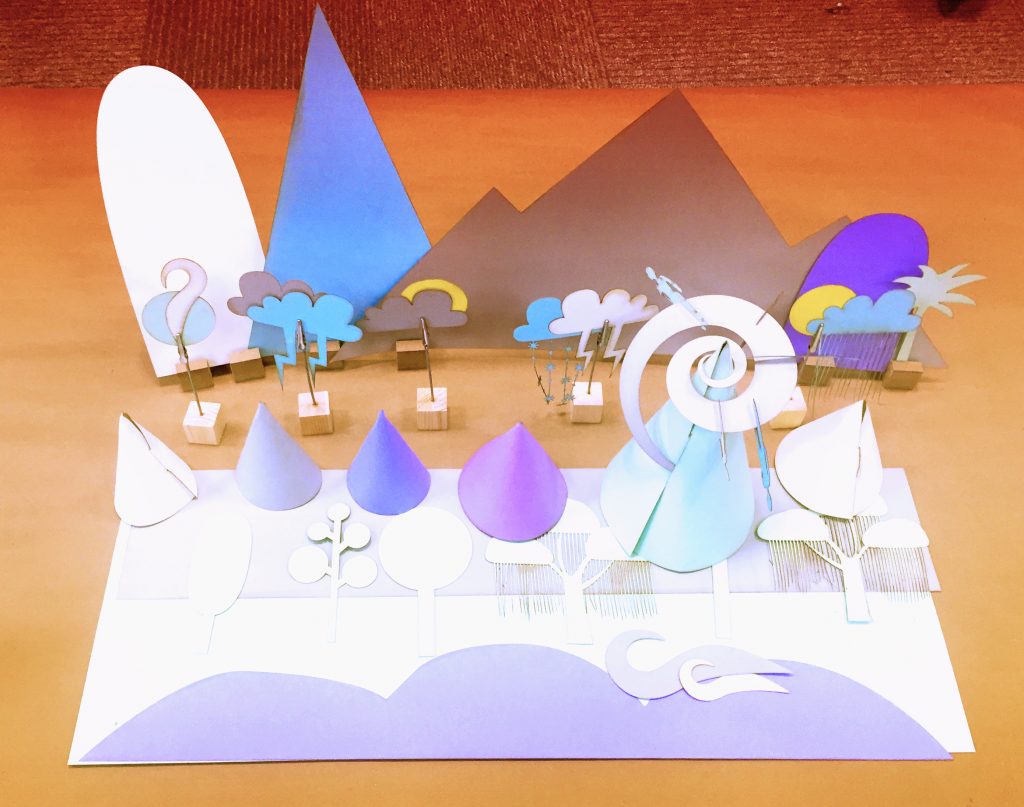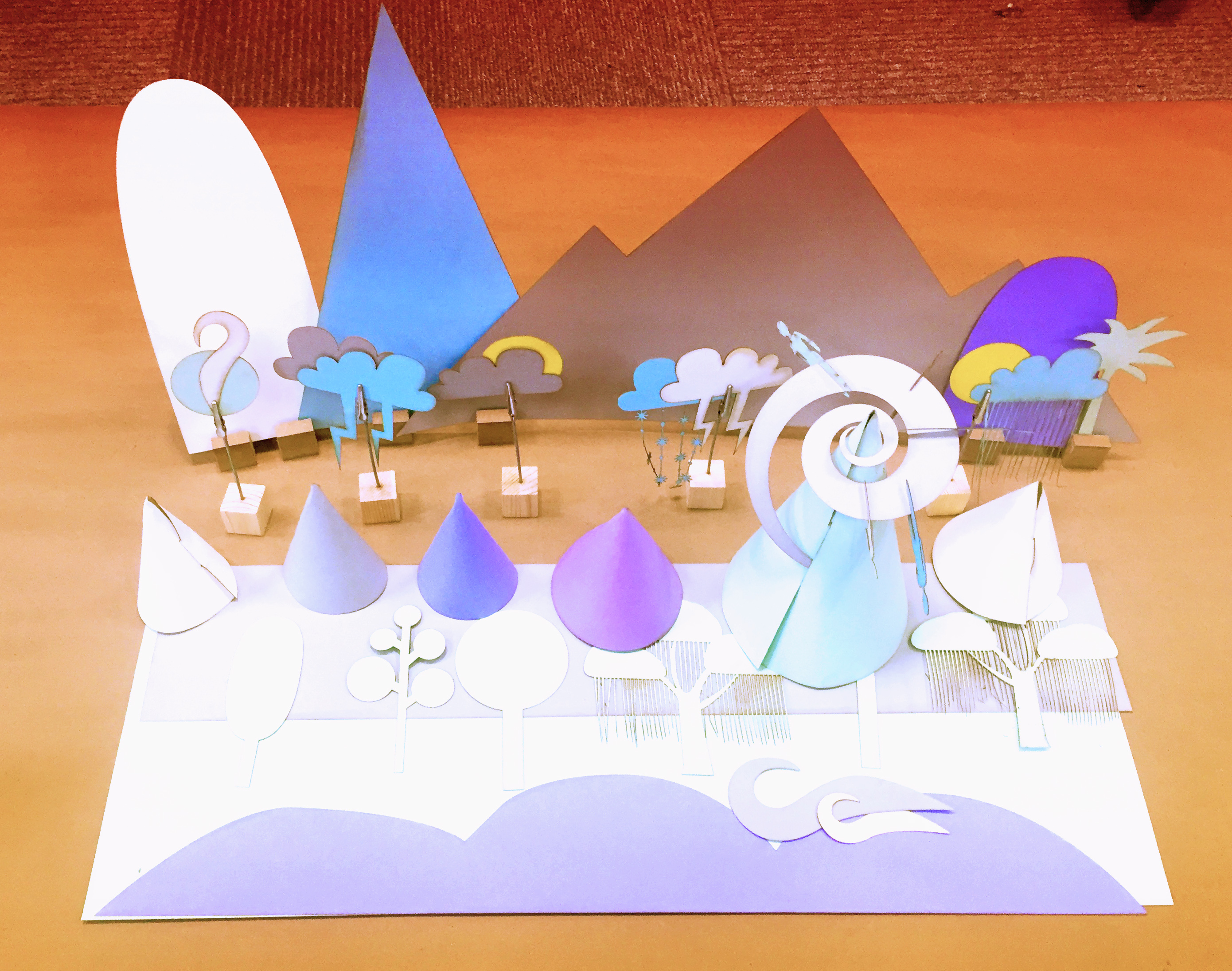
Mental Landscapes workshop—students used landscape metaphors to describe a group project they had worked on. 2017. With Delanie Ricketts.
51471 / 51771 Design Center: Imaginaries Lab: Research through Design
The Imaginaries Lab is a research studio developing design methods to explore and support people’s imagining—both new ways to understand, and new ways to live, in an increasingly complex world. One aim is to develop courses that embody this approach and immerse students in creative research through design projects, including prototyping and using experimental design methods in the wild.
Following last year’s electives, New Ways To Think/ New Ways To Live, for Fall 2019 we’re trying something slightly different: a course running over three weekends (Saturday and Sunday, all day): September 7 & 8; October 5 & 6; November 2 & 3, to enable deeper project work, exploration of ideas, and interesting guests to join us for longer periods. It’ll be more like a real studio or design jam-type event. It’s a full 9 or 12 units (undergrad/grad). We’ll have four weeks between each course weekend, during which your projects will be running or you will be testing or developing them. Classes will be finished by early November. We will have an end-of-semester exhibition during Design Week / Finals Week (Dec 9-13) in which participation will be optional, but highly encouraged.
What you’ll do
You will learn and develop a variety of tools for conducting innovative forms of research through design, including exploring how people think, understand and imagine complex social and technological concepts, and envision futures, and depending on your expertise or interest, will be able to concentrate on applying particular skills as part of multidisciplinary teams. For example, a project might include speculative design, ethnographic inquiry, physical computing, and novel creative methods. We will aim to turn your work into a published output for a conference or journal, so there is additionally the opportunity to gain experience in this aspect of academic research.
What’s the topic?
In collaboration with partner organizations, we’re going to be investigating how people think about and understand a complex, massive, systemic issue (for example: climate change, our own health, artificial intelligence, human history, food systems, how scientific inquiry works, energy, etc) through using design methods, and collaboratively build physical, interactive, ‘working’ models which enable people to explore the system and the dynamics and relationships and possible futures of it, both quantitatively and, importantly, qualitatively. It may well be that we together build one giant room-sized physical system diagram, but there are lots of possibilities. If you’ve seen some of the work we’ve done on ‘materializing’ abstract concepts or developing new metaphors to explain things, or making new kinds of interfaces to reveal phenomena in new ways, this sort of thinking might be familiar. What we’re doing could be somewhere between data physicalization, explorable explanations, tangible service design tools, gigamapping, collective imagery weave, and analog computing, with inspiration from projects such as Anatomy of AI, Colloquy of Mobiles, and Dynamicland.
Any questions, please email: danlockton@cmu.edu
Notes:
51-471 is 9 units, 51-771 is 12 units. The course takes place over three weekends (Saturday and Sunday, formally 8.30am–4.20pm although it will hopefully be a lot less formal than this): September 7 & 8; October 5 & 6; November 2 & 3. It might involve you / your team being off-site for some of that time, doing work ‘in the field’, depending on the forms the projects take.

